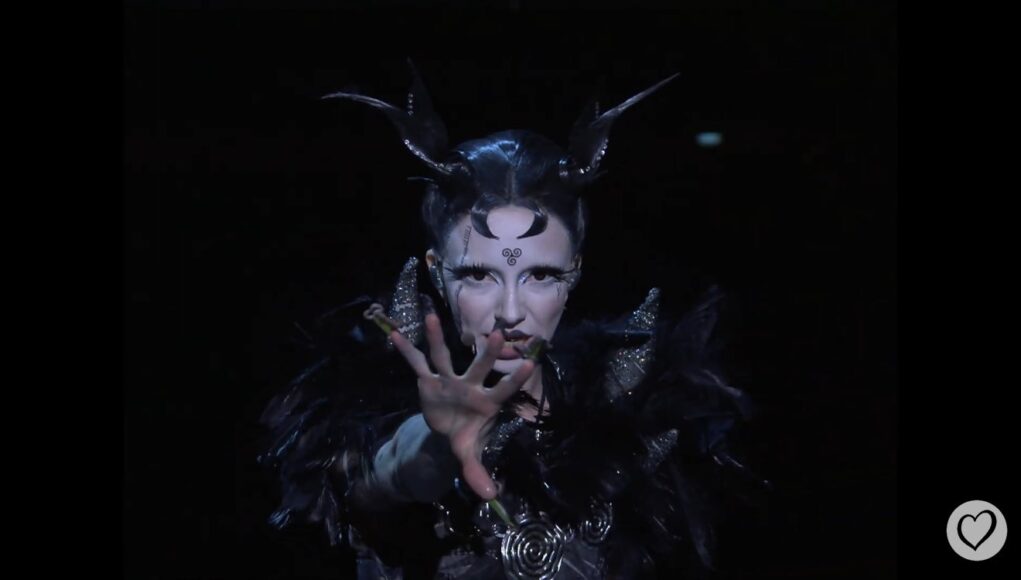By Jess Carniel, University of Southern Queensland
Every year claims to be the most controversial year in the Eurovision Song Contest’s history, but it will take a lot to beat the 68th contest.
The 2024 Eurovision contest, which took place in Malmö, Sweden, was marked by conflict, boycotts, protests, harassment and disqualification. Ironically, it was also the year the organisers, the European Broadcasting Union, chose to establish a permanent slogan: United By Music.
Upon announcing the slogan in late 2023, Eurovision’s executive supervisor, Martin Österdahl, said:
By establishing a permanent slogan, we will have consistency in our message that music unites us all. It’s the perfect slogan to underline our values of inclusivity, equality, universality and celebrating diversity through music.
But the backdrop of the October 7 attacks by Hamas on southern Israel and the ongoing war in Gaza have cast a long shadow over Eurovision 2024.
Calls for Israel’s exclusion
Despite the implicit politics of Eurovision’s new slogan, the contest maintains it is a non-political event. Participating broadcasters and artists are required to ensure the contest is not
[…] politicised and/or instrumentalised and/or otherwise brought into disrepute in any way.
But is it possible for a contest of nations to be non-political?
Just as the conflict in Gaza has divided the international community, Eurovision fans, artists and broadcasters were also divided regarding Israel’s participation.
The Palestinian Campaign for the Academic and Cultural Boycott of Israel, a founding member of the Boycott, Divestment and Sanctions (BDS) movement, called for “all participating broadcasters, national competitors, finalists, production crews and viewers” to boycott the event.
Numerous open letters, co-signed by members of the creative industries, were also published in the lead-up to the contest. Some called for Israel to be excluded and/or the event to be boycotted, while others expressed support for Israel and for the contest as a “celebration of unity”.
Many compared the situation to 2022, when Russia was excluded from the contest following its invasion of Ukraine. In response, the European Broadcasting Union emphasised “the Eurovision Song Contest is a competition for broadcasters” (not states), and the Russian broadcasters were suspended from the organisation and contest for “repeated violations of membership obligations and violation of the rules of the public media”.
So as long as KAN, the Israeli broadcaster, adhered to the membership and contest rules, it would be permitted to remain in the contest.
Some suggest the broadcasting union’s decision itself has brought the contest into disrepute, while an anonymous X account has dedicated itself to documenting allegations against KAN regarding adherence to the rules.
Netherlands gets disqualified
Further controversy emerged in the 24 hours ahead of the grand final broadcast. The Dutch act was disqualified for inappropriate behaviour towards a member of the Swedish production team. The European Broadcasting Union said it maintained
a zero-tolerance policy toward inappropriate behaviour […] and are committed to providing a safe and secure working environment for all staff at the contest.
With this affirmation of policy in mind, prior to the dress rehearsal, Irish artist Bambie Thug lodged a complaint
against the Israeli commentators over remarks made during their performance, claiming they breached the rules of the contest. Bambie Thug also said they had been harassed by Israeli fans.
The 2024 grand final opened with two powerhouse countries: Sweden and Ukraine. Sweden was represented by Norwegian twins Marcus & Martinus and their song Unforgettable, while Ukraine’s alonya alyona & Jerry Heil sang the powerful Teresa & Maria.
Together with Luxembourg, which returned to the contest for the first time since 1994, Ukraine is the only country to maintain a 100% grand final qualification record.
Victory for Switzerland
Israel performed fifth. Eden Golan’s song, Hurricane, was entered into the contest following two revisions of the lyrics to remove political references, including its original title, October Rain (a reference to the October 7 attack).
The crowd’s fractured response was audible in the broadcast, and footage posted by audience members on social media provides evidence of widespread booing. Despite this reaction in the arena, Israel placed second in the public televote.
Israel was surpassed in the popular vote by crowd favourite Baby Lasagna, from Croatia. Rim Tim Tagi Dim is a catchy metal song about the impact of economic emigration on young Croatians, their connection to family and their cultural identity.
However, despite leading the betting odds for most of the contest season, Croatia was pipped at the post by jury favourite, The Code, by Nemo from Switzerland. They are the first non-binary artist to win the contest, notably with an artistically impressive and engaging celebration of their non-binary gender identity.
In their victory speech, Nemo said:
I hope this contest can live up to its promise and continue to stand for peace and dignity for every person in this world.
With Nemo’s victory, next year’s hosting duties are passed on to Switzerland, the home of the European Broadcasting Union. The country last won the contest in 1988, when it was represented by a little-known French-Canadian artist named Celine Dion. It also hosted (and won) the first Eurovision contest in 1956.
https://twitter.com/xsteeewx/status/1789441879878029511
Tensions run high
Many are questioning Eurovision’s future. Österdahl was almost drowned out by audience boos while verifying the results. A planned skit dedicated to him was cut from the final broadcast, as was the use of the Dutch song title, Europapa, to introduce him.
The audience response to Österdahl is illustrative of the growing disquiet among fans and member broadcasters with the union’s management of the contest. This includes concerns about its partner sponsors (such as Israeli company Moroccanoil), whether it’s effectively safeguarding freedom of the press, and doubts about its capacity to maintain the contest as “non-political”.
The stakes are now high for the union, in collaboration with the Swiss broadcaster SRG SSR, to convince the world it can be united in music after all.![]()
Jess Carniel, Associate professor in Humanities, University of Southern Queensland
This article is republished from The Conversation under a Creative Commons license. Read the original article.







